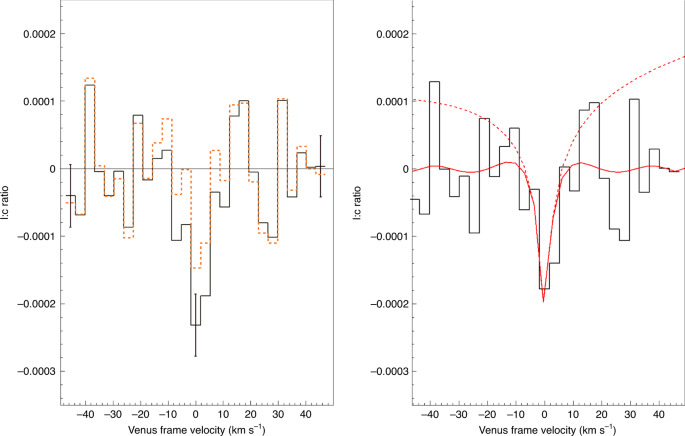so this is lit as shit. theyre saying there is a source of PH3 in the atmosphere of venus, an atmosphere which rarely has any sort of bond containing hydrogen. this implies it could be life.
however, they also mentioned it appearing near the equator. and that made me remember some articles about phosphine in comets and some others about how asteroids tend to hit our equator more. how much yall wanna reckon a giant comet hit that motherfucker many years back and had ph3 in it? they say that the phosphine would deplete in 10^3 years if it is not renewed, i didnt see any info on whether the concentration changed in their year of observation
here's their bit on anomalous events, which doesnt seem to mention asteroids or comets:
Energetic events are also not an effective route to making PH3. Lightning may occur on Venus, but at sub-Earth activity levels33. We find that PH3 production by Venusian lightning would fall short of few-ppb abundance by factors of 107 or more. Similarly, there would need to be >200 times as much volcanic activity on Venus as on Earth to inject enough PH3 into the atmosphere (up to ~108 times, depending on assumptions about mantle rock chemistry). Orbiter topographical studies have suggested there are not many large, active, volcanic hotspots on Venus34. Meteoritic delivery adds at most a few tonnes of phosphorus per year (for Earth-like accretion of meteorites). Exotic processes such as large-scale tribochemical (frictional) processes and solar wind protons also only generate PH3 in negligible quantities (W. Bains et al., manuscript in preparation, submitted to Astrobiology as ‘Phosphine on Venus cannot be explained by conventional processes'; also see Extended Data Fig. 10).
i do like that theyre going for the gold and asking for a new visit to venus and some new telescopes though.


yeah. plus if theyve already determine itd deplete in 10^3 years through other natural processes i doubt we'd see any easily measurable variations due to our limited timescale
I'm a little skeptical of that. They note very large uncertainties for PH3 lifetime at middle atmospheric altitudes, potentially lasting much longer than 10^3 years, which is the timescale of atmospheric mixing. So if there's some process that ends up concentrating PH3 at intermediate altitudes (and intermediate latitudes) and the atmosphere isn't actually well mixed on the 10^3 years timescale, then maybe it is able to build up over time. That's what I'd put my money on, at any rate.
yeah, its a puzzler to me if it isnt a catastrophic event. they also mentioned the possibility of it being a chemical compound that is not yet known and happens to share a similar code for ph3 on their equipment, but they think thats very unlikely
I mean, so is every other possible explanation.
yep lol